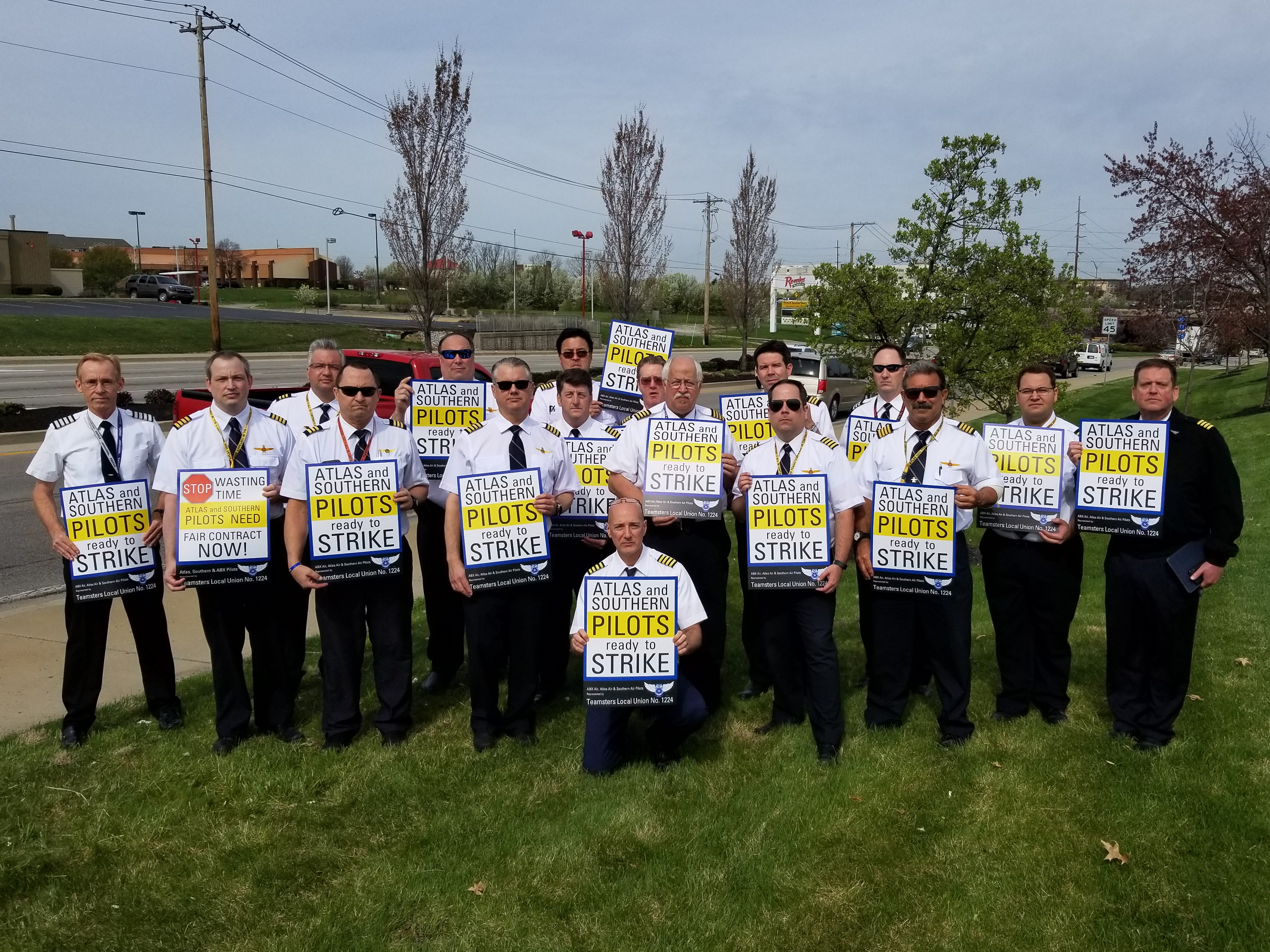- The US Court of Appeals ordered pilots from Atlas Air and Polar Air Cargo to stop calling in sick with little notice, refusing to work overtime, and other illegal work slowdown activities.
- These pilots fly planes on behalf of Amazon Air, which power Amazon’s two-day Prime shipping promise. They also fly aircraft for the US military, DHL, and others.
- In March, Business Insider spoke with 13 pilots who work or have worked for two airlines that are contractors for Amazon Air. They told Business Insider that they were overworked and underpaid, and that the airlines’ contracts with Amazon have forced unsafe working conditions.
- Visit Business Insider’s homepage for more stories.
Nearly a year after the case was initially argued, the US Court of Appeals in Washington, DC, has ordered pilots for Atlas Air and Polar Air Cargo back to work.
The pilots were increasingly calling in sick with little notice, choosing not to work overtime, and other work-slowdown activities, according to the appellate case. Airline pilots are barred from most strikes under the Railway Labor Act, a law dating back to the 1920s and ’30s that limits striking that could interrupt interstate commerce.
The pilots for Atlas Air are one of the two airlines that power Amazon’s two-day Prime shipping promise. Atlas and Polar pilots also fly cargo for the US military, DHL, and others.
“We are very satisfied with this unanimous ruling from a three-judge panel, which affirms and sustains the preliminary injunction that was entered into 2017,” Atlas Air Worldwide CEO William Flynn said in a statement.
Amazon and the International Brotherhood of Teamsters, which represents the pilots, did not immediately respond to a request for comment.

Tensions between Atlas Air pilots and their employer are high as contract negotiations stretch into a fifth year. These negotiations have been challenging, according to five Atlas pilots Business Insider spoke with in March. (Pilot union negotiations are often lengthy. FedEx's most recent pilot labor negotiations lasted two years, while UPS's went on for 3 1/2 years.)
Atlas Air pilots earn considerably less than their peers flying the same planes with the same years of experience at other companies, a Business Insider analysis found. They have not received a raise in nearly a decade.
Amazon threatened to cut its business with Atlas in May because of its shaky labor relations. "The continued inability of Atlas and their pilot union to resolve these negotiations could result in a change to the allocation of our current and future aircraft. We have an obligation to deliver to our customers, and so do they," an Amazon spokesperson told Business Insider in May.
Part of the reason the pilots have gone so long without a raise is the lack of a new union contract. The contract at Atlas has been amenable since 2015, meaning it's still in effect but available to be negotiated.
Negotiations, which have stretched on for nearly five years, have been challenging, According to the ruling, which the appellate court issued on July 5, pilots for Atlas and Polar Air were deploying a variety of tactics to pressure their employers to issue a new work contract.
"Any alleged delay in getting to the next pilot contract has been a direct result of the union's refusal to adhere to its contractual commitments, which provide for an orderly and timely resolution of unresolved contractual issues," Atlas's Flynn said in a statement to Business Insider in March. "Had union leadership followed the CBA, the pilots would have had a new contract by now."
The appellate court decision describes how pilots for both divisions of Atlas Air Worldwide were purposefully slowing down their work to pressure their employers for a new work contract (emphasis ours):
According to Captain (Robert) Kirchner, (an Atlas Air pilot and executive council chairman of Teamsters Local 1224), "SHOP" or "shopping" refers to the idea that pilots should not "help out" Atlas "by permitting [it] to get away with contract violations," but should instead insist on "strict contract compliance."
The Union asked pilots to "BOOT," which stands for "block out on time." E.g., J.A. 652. By contrast, Atlas encourages pilots to "block out"-i.e., push back from the gate-up to fifteen minutes early as a matter of course, or even earlier with Atlas's approval. The Executive Committee also encouraged pilots to think more carefully about when to call in sick or accept overtime work.
Short-notice sick calls upticked in recent years. From Oct. 1, 2015 to Sept. 20, 2016, sick calls that were same-day jumped from 14% to 24% of all sick calls. But sick calls made the customary two days in advance dropped from 45% to 32%.

